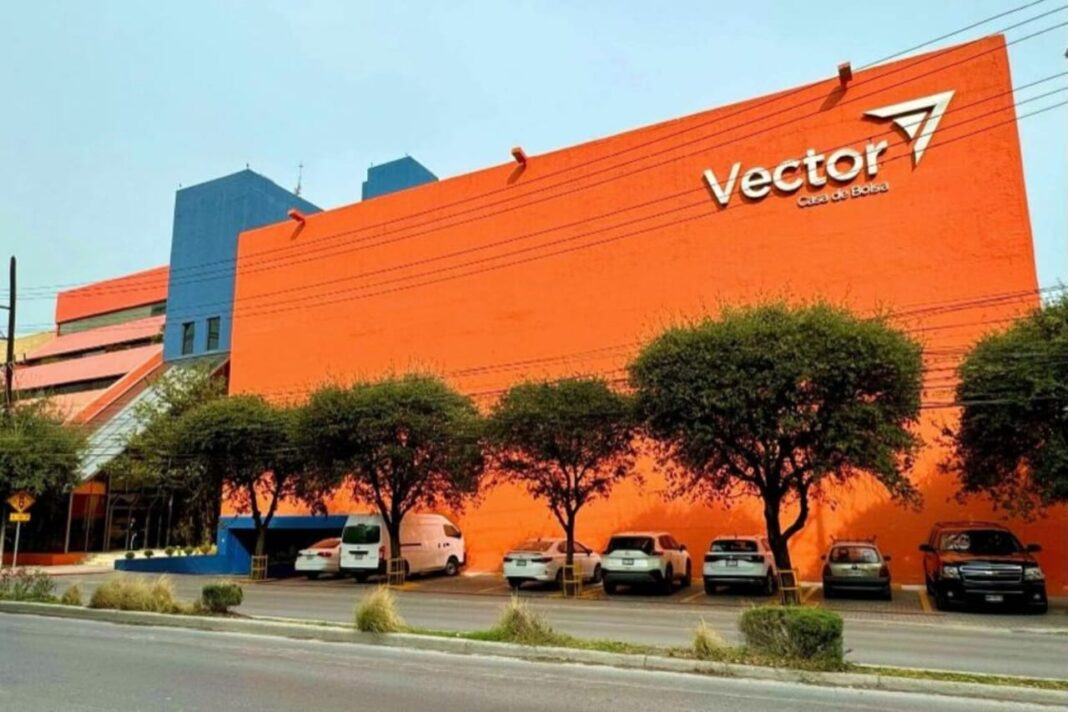With the beginning of October, everything indicates that the situation of CI Banco, Intercam, and Vector Casa de Bolsa—Mexican financial entities accused on June 25 by the U.S. Department of the Treasury of allowing money laundering operations—is about to be resolved. These institutions have been threatened with being disconnected from the U.S. financial system, a threat whose critical deadline, after two extensions, is set for October 20.
Vector Casa de Bolsa, a firm that had practically ceased all corporate communications following the scandal, announced this Wednesday the orderly transfer of its assets to Finamex Casa de Bolsa, including its investment fund manager (Vector Fondos). The announcement is striking not only for the business it represents but also because Vector was the only one of the three accused institutions that had not shown any movement related to its assets.
The brokerage firm clarified that the transfer is not a merger nor an acquisition of Vector’s license or corporation, but is exclusively a transfer of client portfolio and assets.
“After a rigorous and responsible analysis process, Vector determined that the best alternative was to carry out an orderly transfer of its assets to Finamex Casa de Bolsa, an institution with more than five decades of experience, recognized for its solvency, professionalism, and commitment to Mexico’s financial development,” the institution explained in a statement.
Vector emphasized that, with this transaction, client investments and assets remain intact and duly protected under the custody and supervision mechanisms established by Mexican regulations, and safeguarded by the Instituto para el Depósito de Valores (Indeval), ensuring their security and availability in accordance with applicable legal provisions.
According to Vector, the promoters and advisors currently serving clients at the firm will join Finamex, ensuring the same level of quality, closeness, and dedication. The operation is subject to the corresponding regulatory approvals.
The Business Buyer
“Finamex will acquire, through its investment fund operating company or any other affiliate it designates, the fixed capital stock shares held by Vector Fondos, S.A. de C.V. in 21 investment funds,” the entity specified in a brief statement.
Finamex was originally founded as Valores Finamex, S.A. de C.V. in 1974. The current entity, Casa de Bolsa Finamex, S.A.B. de C.V., was established in 1992. In 2024, Finamex operated a volume of 1.48 trillion Mexican pesos (approximately 74 billion U.S. dollars) in the capital markets, making it the leader in traded value that year, with an increase of 360 billion pesos (18 billion dollars) over the previous year.
With the announcement, Vector Casa de Bolsa joins the banks CI Banco and Intercam, which have dismantled part of their operations, increasing market expectations that all three are fatally wounded and have little future—even if they manage to withstand the U.S. Treasury sanctions. The accusation alone has been devastating for their operations and nearly fatal in an essential factor for any financial institution worldwide: trust.
In July 2025, a few days after the Treasury Department’s announcement, Mexico’s Ministry of Finance and Public Credit decided to “temporarily” transfer the trust business of CI Banco and Intercam to other banks as a preventive measure—a temporality that now seems definitive. But how significant was this business for the banks?
Impact on the Trust Business
The trust business of the Mexican banking system—trusts managed by banks—was estimated at 11 trillion pesos (around 594.6 billion U.S. dollars) at the end of the first quarter of the year.
In this market, CI Banco was the dominant institution with an estimated 26% market share, equivalent to nearly 3 trillion pesos (162.162 billion U.S. dollars).
Intercam, in contrast, had a much smaller share, managing around 67.941 billion pesos (approximately 3.672 billion dollars), representing 1% of the total market.
An HR Ratings report noted that, at the end of last year, the trust business accounted for nearly 10% of CI Banco’s total revenue. There were no estimates available for Intercam’s income derived from its trust operations.
But trusts are not the whole story. The reputational damage is incalculable—not so much due to the outflow of funds from client account closures, but because regaining trust will be a years-long task, assuming operations even continue past the U.S. Treasury’s upcoming deadline.
Decline in Operations
According to data from the National Banking and Securities Commission (CNBV), in June—following accusations by FinCEN and the U.S. Treasury—CI Banco and Intercam reported a combined withdrawal of 16.132 billion pesos in client deposits (872 million U.S. dollars).
For CI Banco alone, deposits dropped from 50.948 billion pesos to 38.175 billion pesos (from 2.753 billion to 2.063 billion U.S. dollars), a decrease of 12.773 billion pesos (690.43 million dollars), or 25.33% in just one month.
Intercam experienced a similar situation. Though the absolute figures are smaller due to its size, client deposits fell from 40.172 billion pesos to 36.849 billion pesos (from 2.171 billion to 1.991 billion U.S. dollars), a decline of 8.53% in the same month.
CI Banco has also seen significant restrictions in its operations. For instance, its foreign exchange area is practically informally suspended to avoid any transactions that might further complicate its position with financial authorities in both Mexico and the United States.
Additionally, the agreement supporting the issuance of credit cards by the institution was unilaterally canceled, and ratings agencies—especially Fitch Ratings—have downgraded its credit rating.
Intercam is now considered nearly a “banking shell.” The brand itself has little future if it survives U.S. sanctions. So much so that on August 20, Kapital Bank—until then one of the smallest banks in the Mexican market—announced it had acquired assets from Intercam Banco, its brokerage, and its investment fund manager.
The acquiring institution also reported that it would invest 100 million U.S. dollars into the business to support Intercam’s clients.
There have also been confirmed reports that Bankaool, another small bank in the system, hired over 280 employees from Intercam’s foreign exchange desk. Actinver, an investment fund manager, confirmed that it acquired several trusts previously managed by CI Banco, primarily FIBRAs (real estate investment vehicles).
Vector and the Political Factor
Just last year, Vector Casa de Bolsa celebrated its 50th anniversary with much fanfare. At the time, its owner, businessman Alfonso Romo Garza, told the press that the future of his company was promising and toasted to the next 50 years.
“Vector’s main goal is to reach 300 billion pesos in assets under management (15.79 billion U.S. dollars) by 2025, to consolidate as the best independent brokerage firm in the system and continue making history,” said Romo Garza and Edgardo Cantú Segovia, the firm’s CEO, during the celebration.
Alfonso Romo is not just another businessman. Although he is not currently listed among Mexico’s top 20 wealthiest individuals—the most recent estimate of his personal fortune dates back to 1998 at around 2.4 billion U.S. dollars—his public presence in recent years has surpassed that of many top business figures in the country.
Romo Garza served as Chief of the Office of the Presidency from December 1, 2018, when Andrés Manuel López Obrador began his term, until December 2, 2020. His resignation, nearly four years before the end of the president’s term, did not sever his ties to the administration.
The reasons for his departure from what was considered the most influential office in the Mexican government were never fully disclosed, but he has always been regarded as one of the architects behind the rise to power of the long-time opposition leader and presidential hopeful.
Therefore, the U.S. Treasury’s money laundering accusation against the most important company in Romo Garza’s business group becomes a major political factor, especially considering the current government stems from the same party as López Obrador.
Romo Garza has not said a single word, while Vector Casa de Bolsa only issued one statement on the day the money laundering accusations became public. Since then, the firm remained silent and attempted to continue operations as normally as possible.



